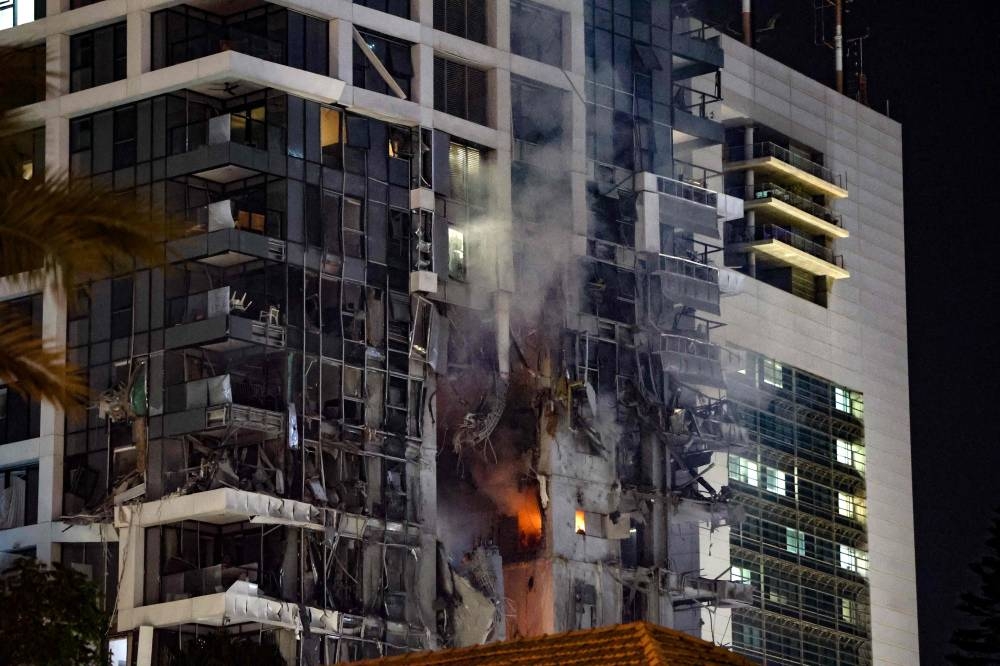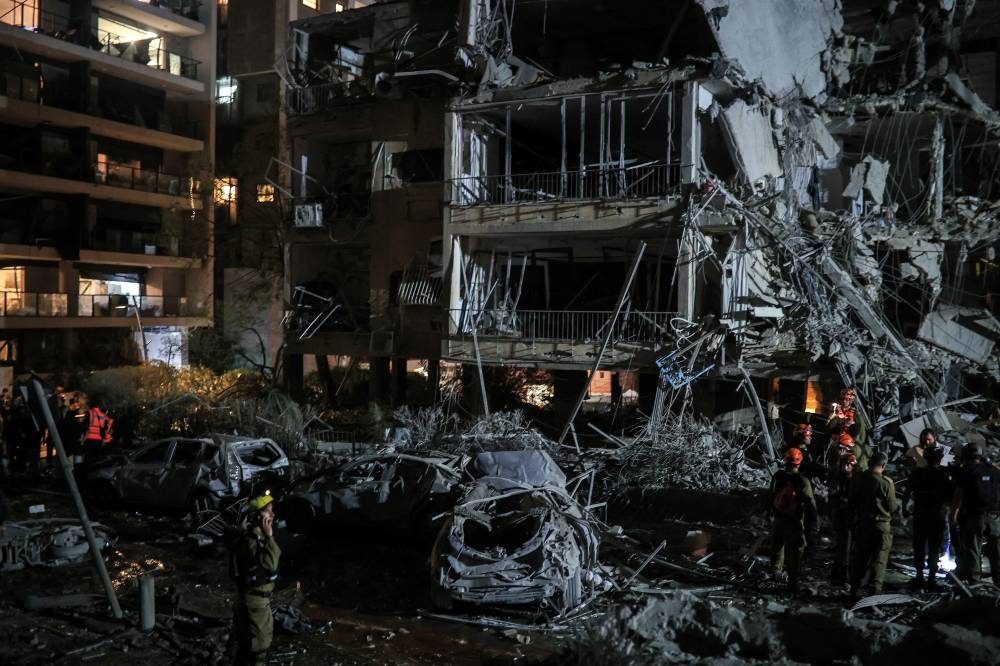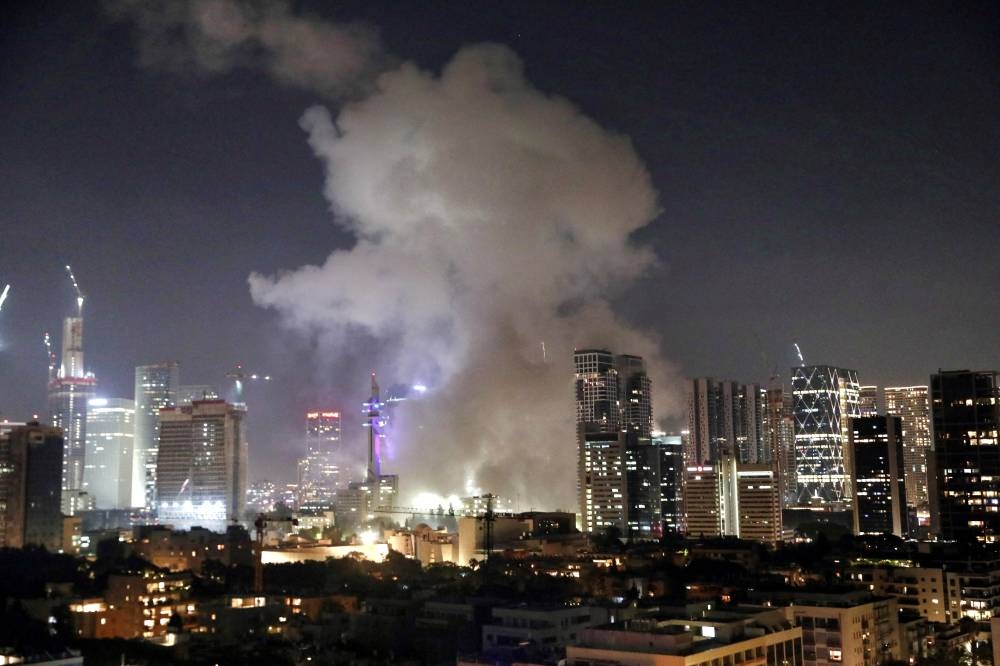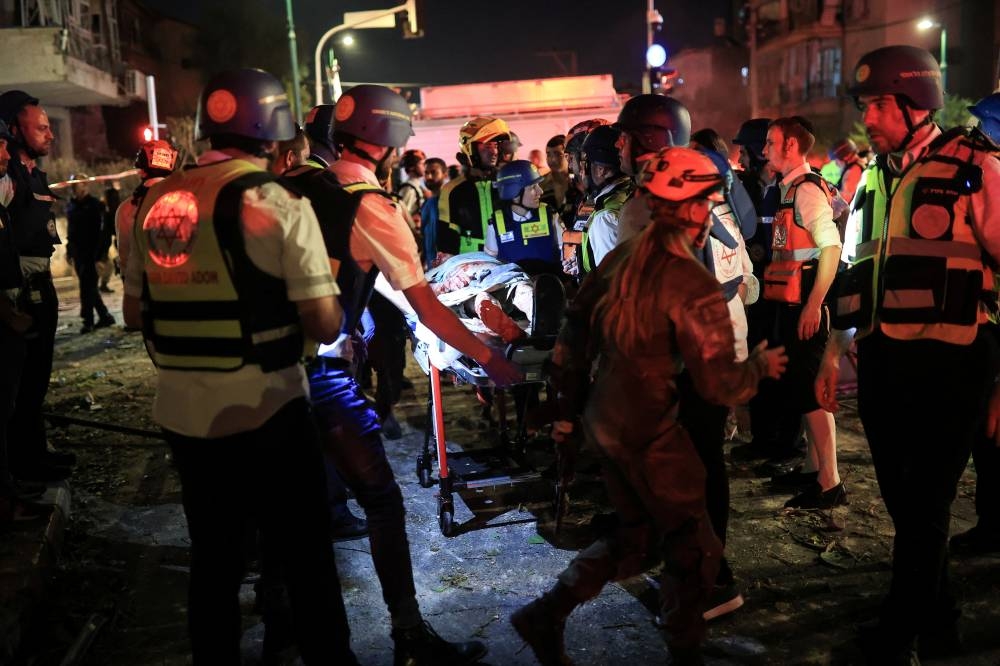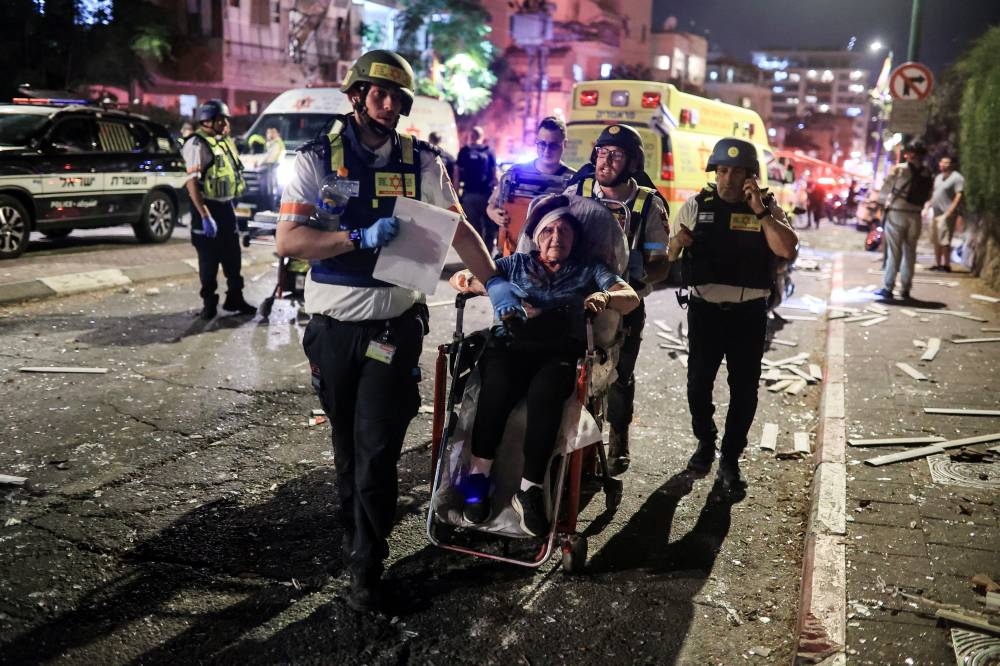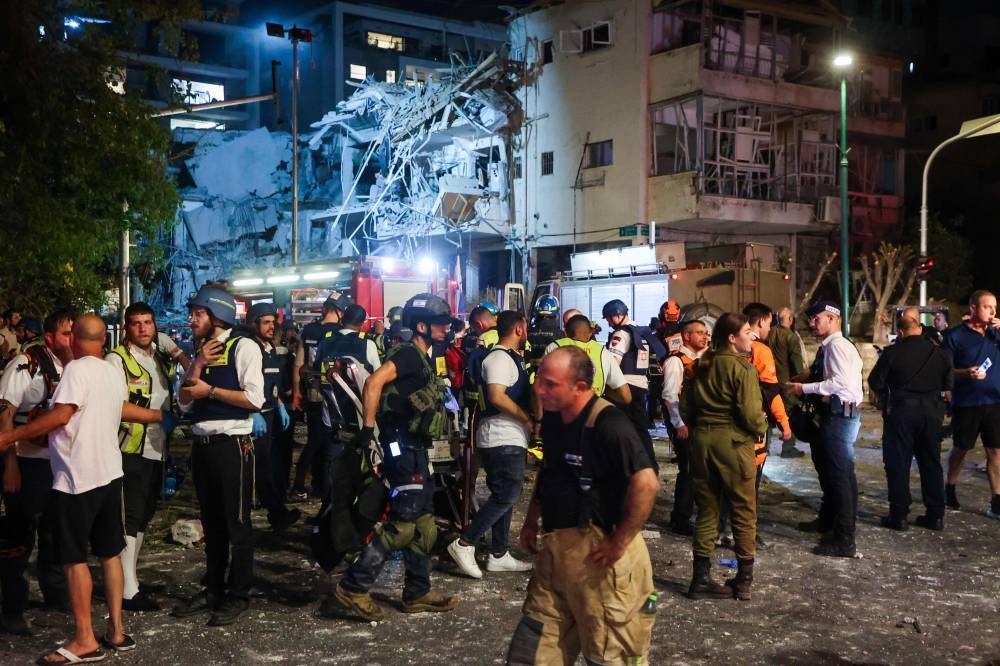- Iran retaliates for Israeli strikes on nuclear sites
- Trump suggests nuclear deal still possible
- Iranian commanders killed
- UN Security Council to discuss conflict
The IRGC said in a statement that it launched hundreds of various ballistic missiles at the occupied territories in response to the attack launched by the Israeli entity at dawn Friday against multiple sites inside Iranian territory, confirming that it targeted dozens of targets, military centres, and air bases of the entity in the occupied territories.
In a related context, Israeli media outlets, citing officials, reported that the Iranian attack injured at least seven people and caused unprecedented destruction in the Greater Tel Aviv area.
Iran had previously vowed a strong and decisive response to the aggression launched by the Israeli entity Friday against its territory, which resulted in the deaths of military leaders and civilians.
Reuters reports: Explosions werer heard in Jerusalem and Tel Aviv, the country's two biggest cities, following Israel's biggest-ever military strike against Iran.
Air raid sirens sounded across Israel as authorities urged the public to take shelter. Missiles were seen over Tel Aviv's skyline.
The US military has helped shoot down Iranian missiles that were headed toward Israel, two US officials said Friday.
In the Tel Aviv area, Israel's ambulance service said five people were treated for shrapnel injuries. Live footage of Tel Aviv showed what appeared to be a missile hitting an urban area. A critically injured woman was admitted to Beilinson Hospital in nearby Petah Tikva, a hospital spokesperson said.
The unprecedented Israeli strikes on Iran and the subsequent Iranian retaliation raised concerns about a broader regional conflagration.
Iran's state news agency IRNA said Tehran launched hundreds of ballistic missiles at Israel after Israel blasted Iran's huge Natanz underground nuclear site and killed its top military commanders.
Iran's Supreme Leader Ayatollah Ali Khamenei accused Israel of having initiated a war. A senior Iranian official said nowhere in Israel would be safe and revenge would be painful.
Israel's operation "will continue for as many days as it takes to remove this threat," Israeli Prime Minister Benjamin Netanyahu said in a TV address.
Netanyahu said he authorised the air assault in an effort to prevent Iran from building nuclear weapons. Israel and its Western allies have said this is Tehran's objective but Iran has denied it.
Iran has long insisted its nuclear programme is for civilian purposes only. The UN nuclear watchdog concluded this week that it was in violation of its obligations under the global non-proliferation treaty.
US President Donald Trump said it was not too late for Tehran to halt the Israeli bombing campaign by reaching a deal on its nuclear programme.
Tehran had been engaged in talks with the Trump administration on a deal to curb its nuclear programme to replace one that Trump abandoned in 2018. Tehran had rejected the last US offer.
Iranian media showed images of destroyed apartment blocks in Iran, and said nearly 80 civilians were killed in attacks that targeted nuclear scientists in their beds and wounded more than 300 people.
Israel's military said it was striking Iranian missile and drone launching sites, and had struck another nuclear site in Isfahan.
In a phone interview with Reuters, Trump said nuclear talks between Tehran and the US, scheduled for Sunday, were still on the agenda though he was not sure if they would take place.
"We knew everything," Trump said of the Israeli attack plans.
"I tried to save Iran humiliation and death. I tried to save them very hard because I would have loved to have seen a deal worked out," Trump said. "They can still work out a deal, however, it’s not too late."
Two regional sources said at least 20 Iranian military commanders were killed. Iran also said six of its top nuclear scientists had been killed.
Among the generals killed Friday were the armed forces chief of staff, Major General Mohammad Bagheri, and the Revolutionary Guards chief, Hossein Salami.
Major General Mohammad Pakpour, swiftly promoted to replace Salami as Guards commander, vowed retaliation in a letter to the Supreme Leader read on state television: "The gates of hell will open to the child-killing regime."
The price of crude leaped on fears of wider retaliatory attacks across a major oil-producing region, although there were no reports that oil production or storage was damaged. Opec said the escalation did not justify any immediate changes to oil supply.
Later Friday, Iranian media reported explosions on the northern and southern outskirts of Tehran and at Fordow, near the holy city of Qom, a second nuclear site that was spared in the first wave of attacks.

